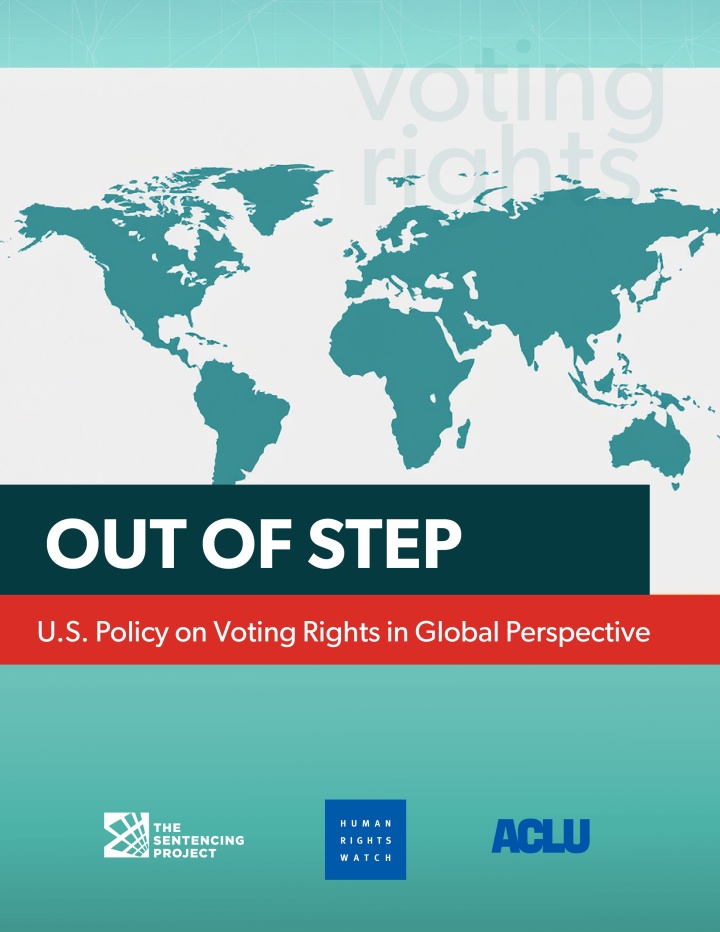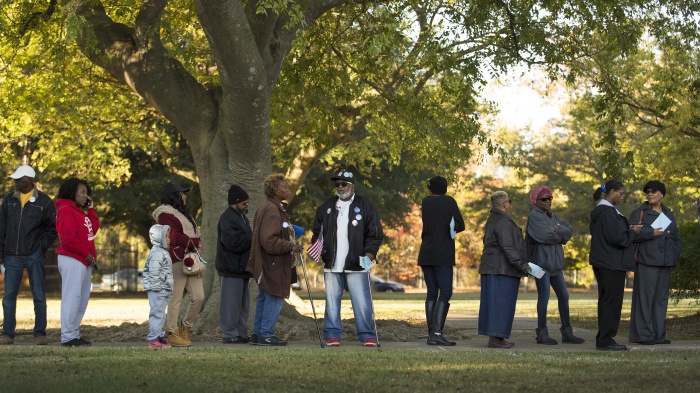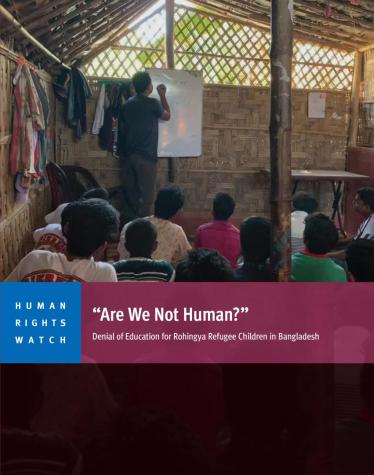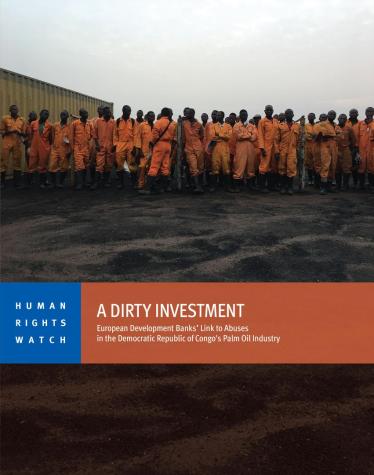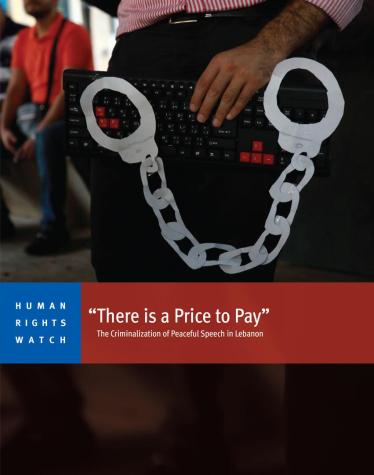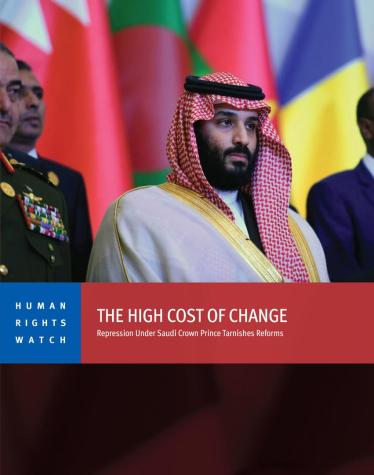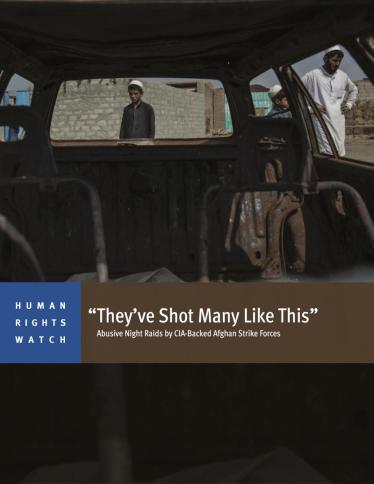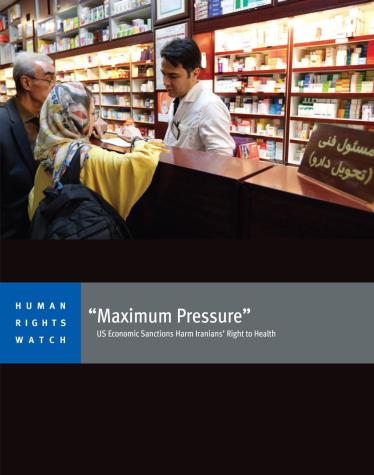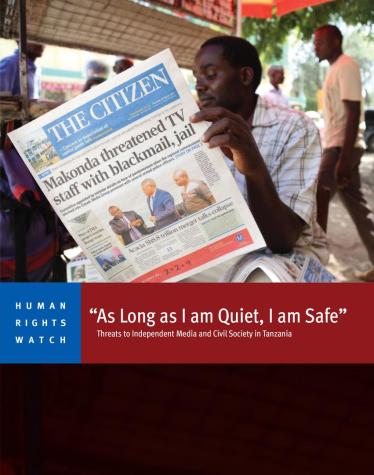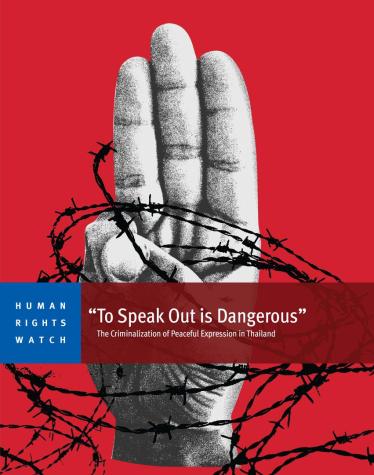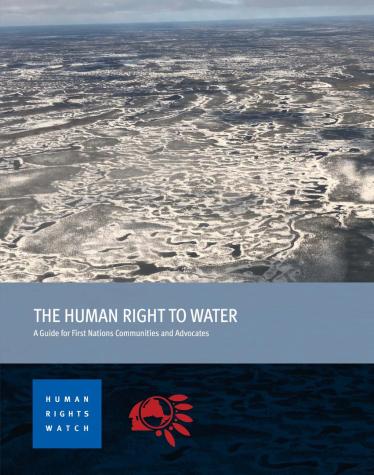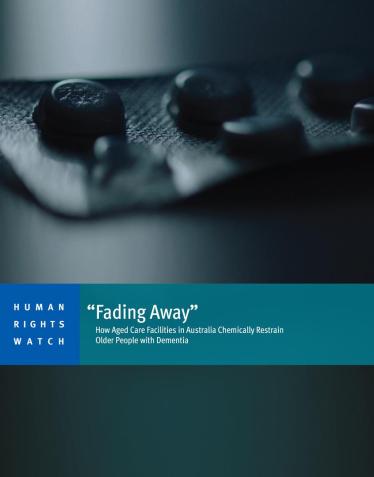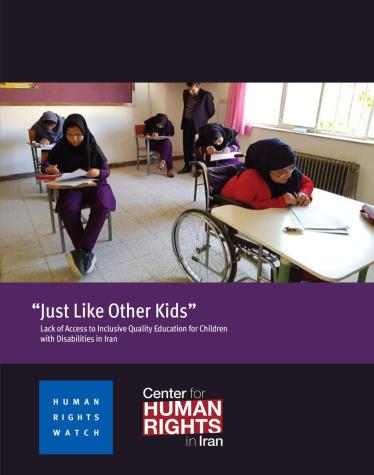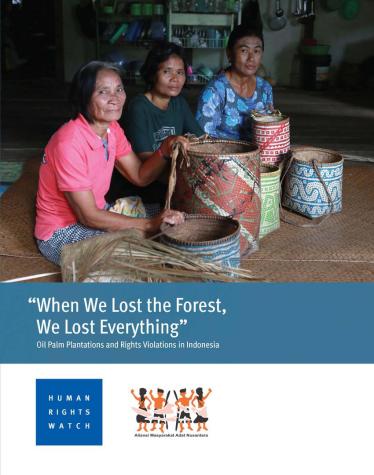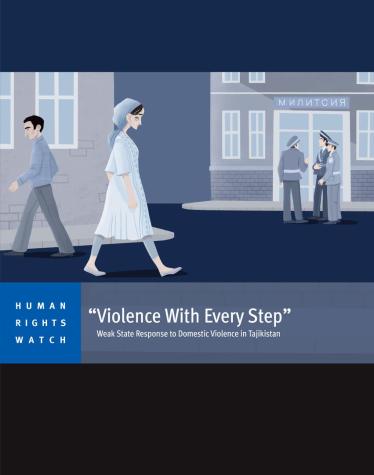Out of Step
U.S. Policy on Voting Rights in Global Perspective
The 55-page report, “Out of Step: US Policy on Voting Rights in Global Perspective,” examines the laws of 136 countries around the world with populations of 1.5 million and above and finds that the majority—73 of the 136—never, or rarely, deny a person’s right to vote because of a criminal conviction. In the other 63 countries, the United States sits at the restrictive end of the spectrum, disenfranchising a broader swath of people overall.
